One of the first parameters studied in the seminogram is the volume of ejaculated semen. Although this value does not directly refer to the amount of sperm present in the ejaculation, it is important to check that the amount of ejaculated sperm is sufficient for some to reach the uterus and that, therefore, it is possible to achieve fertilization and pregnancy in a natural way.
When a man is diagnosed with low semen volume, an appropriate lifestyle is usually advised. Therefore, specialists recommend avoiding the consumption of toxic substances and to take care of nutrition.
Provided below is an index with the 7 points we are going to expand on in this article.
- 1.
- 2.
- 2.1.
- 2.2.
- 2.3.
- 3.
- 4.
- 4.1.
- 4.2.
- 4.3.
- 4.4.
- 4.5.
- 4.6.
- 5.
- 6.
- 7.
How will sperm volume be analized?
The volume of ejaculated sperm is measured in milliliters with a laboratory pipette. The average amount of semen per ejaculate in men is between 2 and 4 ml, although it is a value that can vary depending on different aspects, such as sexual abstinence, stress, and so on.
According to the World Health Organization (WHO), an ejaculate volume from 1.5 ml is considered normal. Results above the reference value do not indicate changes affecting fertility. However, a volume of ejaculated semen less than this value gives rise to the pathology known as hypospermia.
Alterations in male fertility
As we will see below, there are some alterations related to the volume of ejaculation that can compromise the reproductive capacity of men. In the following sections, we describe each of these alterations.
Hypospermia
Hypospermia or a small amount of semen produces male infertility since if less than 1.5 ml of ejaculate volume is expelled, it is difficult for sperm to travel all the way to the ampulla area, in the fallopian tubes, where the egg is found.
By using assisted reproduction techniques, such as ICSI, where few sperm are needed, men who have hypospermia have a good chance of being parents since although the volume of ejaculate is less than 1.5 ml, a very low amount of sperm is required to perform this technique.
If you want more information about this pathology, you can find it in this article: Hypospermia: Causes, Symptoms, and Treatment.
It should be noted that before diagnosing hypospermia, it is advisable to ensure that the sample has been obtained correctly and that the entire ejaculate has been collected. To this end, the patient will be asked specifically whether he or she has provided the entire sample or only partially.
In the event that only part of it has been delivered, the diagnosis could be wrong. Abstinence days referred by the patient should also be taken into account. Is the number of abstinence days less than 2, it is normal that the volume of ejaculate decreases.
Related topic: Hypospermia.
Aspermia
Another more serious volume-related complication is aspermia, where the man is not able to expel any fluid in the ejaculation. In this case, the cause of this alteration should be found and sperm production in the testicles checked.
It has two main causes:
- Retrograde ejaculation: the ejaculate is not expelled to the outside, but flows into the bladder.
- Obstruction or absence of any of the ejaculatory ducts.
It is important to note that aspermia is not the same as azoospermia. In the first case, there is no seminal volume, while in the second case there is ejaculate volume, but no spermatozoa in the ejaculate.
Hyperspermia
Finally, more semen may be produced than the normal amount of ejaculate for a man. This is what is known as hyperspermia.
We consider a man to have hyperspermia when the amount of ejaculated seminal fluid is greater than 6 ml. As we have mentioned, it is not a cause of infertility but it is usually related to the large size of the seminal vesicles since these formations are responsible for more than 70% of the volume of ejaculate.
It may also be due to excessive days of abstinence or inflammation of these organs.
How to increase ejaculation volume?
The expulsion of a small amount of ejaculate can result from different aspects, both hormonal and anatomical. Obstruction of the ejaculatory ducts or androgen deficiency are some of the main causes.
Depending on the reason for the hypospermia, we will act accordingly to find a solution to increase the ejaculate volume. Therefore, there is no definitive or one-size-fits-all treatment.
If you want to know more about how you can increase sperm quality, we recommend that you access the following article: How is sperm quality analyzed and what can we do to improve it?
There are medications that can help, but it is generally recommended to avoid toxic abuse, such as tobacco or alcohol, and to eat a healthy, balanced diet. Drinking plenty of water and natural juices is recommended, as well as consuming fresh fruits and vegetables, due to their high content of vitamin C and antioxidants.
Zinc is also a highly recommended mineral due to its antioxidant properties, so it must be included in the diet. Some of the foods rich in zinc that can help increase the amount of ejaculate are oysters, beans, beef, or nuts.
It should be noted that these healthy habits may help in some men, but will hardly have any effect in the most severe cases. It is advisable to go to a fertility clinic if you’re still not pregnant after one year of unprotected sex.
Assisted procreation, as any other medical treatment, requires that you rely on the professionalism of the doctors and staff of the clinic you choose. Obviously, each clinic is different. Get now your Fertility Report, which will select several clinics for you out of the pool of clinics that meet our strict quality criteria. Moreover, it will offer you a comparison between the fees and conditions each clinic offers in order for you to make a well informed choice.
FAQs from users
How can sperm volume be increased?
There are no concrete actions to increase sperm volume. The right thing would be to redirect the question towards: how can semen quality be improved?
Seminal characteristics are specific to each male. However, there are certain factors that can modify the quality of the semen, causing it to increase or decrease.
Factors that diminish seminal quality are: tobacco, alcohol, drugs, a bad diet, a very stressful life rhythm, continuous and direct exposure to radiation or chemical agents harmful to health.
In order to improve seminal quality the right thing is to lead a healthy way of life:
- Balanced and healthy food (encourage the regular consumption of foods rich in antioxidants)
- Maintain an adequate weight (excess weight is negative for seminal quality)
- Maintain a low-moderate stress level

However, there are pathologies such as agenesis of vas deferens, infections in glands such as seminal vesicles or prostate, etc. that can reduce the volume of an ejaculate, and therefore it is very important to consult a specialist.
Is a natural pregnancy possible with low ejaculate volume?
The decrease in ejaculate volume is called hypospermia and this happens when the volume of seminal fluid is below 1.5 ml. Among the most frequent causes of hypospermia is the age of the male, prostate surgery, inflammatory processes of the pelvis, and the male reproductive system.

Sometimes hypospermia is accompanied by a decrease in the concentration of sperm (oligozoospermia), which significantly reduces the chances of achieving a natural pregnancy and will require assisted reproduction treatments.
Is it a serious problem if the ejaculation volume decreases and normal values are not restored after prolonged abstinence?
In cases where the descent is very drastic, it is best to go to a specialist to rule out any alteration in the ejaculatory ducts.
It will be necessary to evaluate if all the glands that participate in seminal production are well or if on the contrary simply the seminal characteristics have changed without implying alterations.
Is low ejaculate volume a cause of male infertility if all other semen parameters are within normal range?
A male ejaculate volume of less than 1.5 mL may be associated with male infertility if it is an impediment to pregnancy. However, if all other seminal parameters are within normal range, male fertility should not be compromised.
Read more
What factors can influence semen volume?
Semen volume values considered normal by the World Health Organisation are between 1.5 and 6 mL. However, sometimes the semen volume can be lower or higher, known as hypospermia and hyperspermia respectively.
Read more
Is the ejaculation volume always the same?
No. Although it is approximately equal in volume, it varies between different men and even in the same man. For example, factors such as days of abstinence may cause changes in seminal volume.
The fact that one day the ejaculate is of low volume should not be cause for concern.
Suggested for you
As we have seen, the seminal volume is analyzed by means of the seminogram. If you want to know more about this test, we recommend that you read the following article: What is a basic seminogram and how is it done step by step?
If you want to know how to interpret the results correctly, you will find more information here: How to interpret the results of the seminogram and their normal values.
We make a great effort to provide you with the highest quality information.
🙏 Please share this article if you liked it. 💜💜 You help us continue!
References
Brent M Hanson, Kenneth I Aston, Tim G Jenkins, Douglas T Carrell, James M Hotaling. The impact of ejaculatory abstinence on semen analysis parameters: a systematic review. J Assist Reprod Genet. 2018 Feb;35(2):213-220 (View)
Carol Sukhn, Johnny Awwad, Akram Ghantous, Ghazi Zaatari. Associations of Semen Quality With Non-Essential Heavy Metals in Blood and Seminal Fluid: Data From the Environment and Male Infertility (EMI) Study in Lebanon. J Assist Reprod Genet. 2018 Sep;35(9):1691-1701. doi: 10.1007/s10815-018-1236-z (View)
Deniz Kulaksiz, Tuncay Toprak, Eda Tokat, Mehmet Yilmaz, Mehmet Akif Ramazanoglu, Asgar Garayev, Muhammed Sulukaya, Recep Burak Degirmentepe, Elnur Allahverdiyev, Murat Gul, Ayhan Verit. Sperm concentration and semen volume increase after smoking cessation in infertile men. Int J Impot Res. 2022 Sep;34(6):614-619. doi: 10.1038/s41443-022-00605-0. Epub 2022 Aug 13 (View)
G F Gonzales , A Villena. Influence of Low Corrected Seminal Fructose Levels on Sperm Chromatin Stability in Semen From Men Attending an Infertility Service. Fertil Steril. 1997 Apr;67(4):763-8. doi: 10.1016/s0015-0282(97)81380-5 (View)
H Taniguchi, G Kawa, K Yoshida, K Takayasu, H Kinoshita, T Matsuda. Relationship Between Volume of the Seminal Vesicles and Sexual Activity in Middle-Aged Men. Andrologia. 2017 Apr;49(3). doi: 10.1111/and.12618. Epub 2016 May 20 (View)
S La Vignera , R A Condorelli, G Morgia, V Favilla, G I Russo, S Cimino, E Vicari, A E Calogero. Different Levels of Cd45pos Leukocytes in the Semen of Patients With Low Testicular Volume. Int J Immunopathol Pharmacol. 2015 Mar;28(1):85-92. doi: 10.1177/0394632015572748 (View)
FAQs from users: 'How can sperm volume be increased?', 'Is a natural pregnancy possible with low ejaculate volume?', 'Is it a serious problem if the ejaculation volume decreases and normal values are not restored after prolonged abstinence?', 'Is low ejaculate volume a cause of male infertility if all other semen parameters are within normal range?', 'What factors can influence semen volume?' and 'Is the ejaculation volume always the same?'.
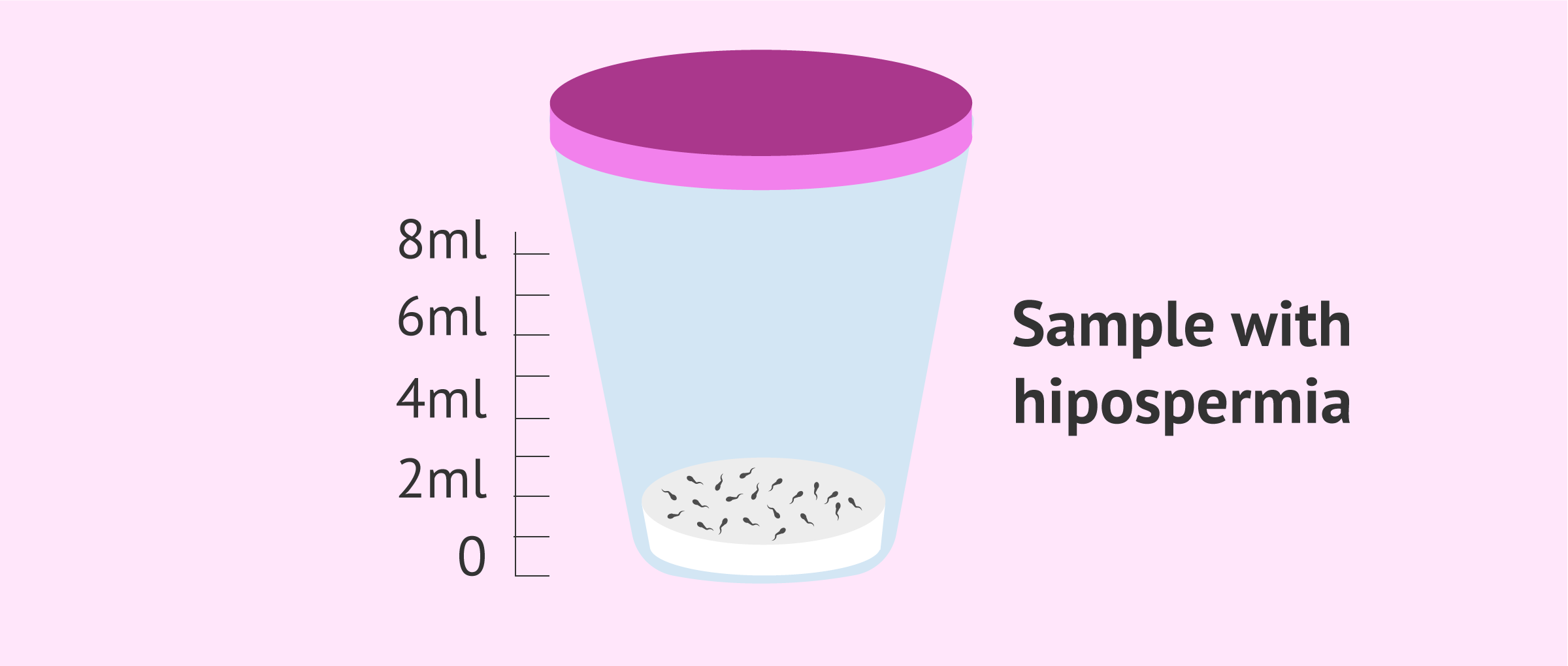
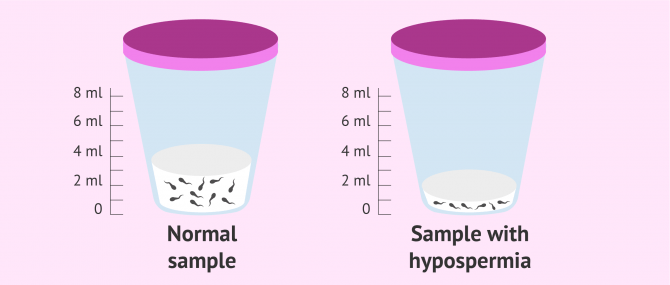
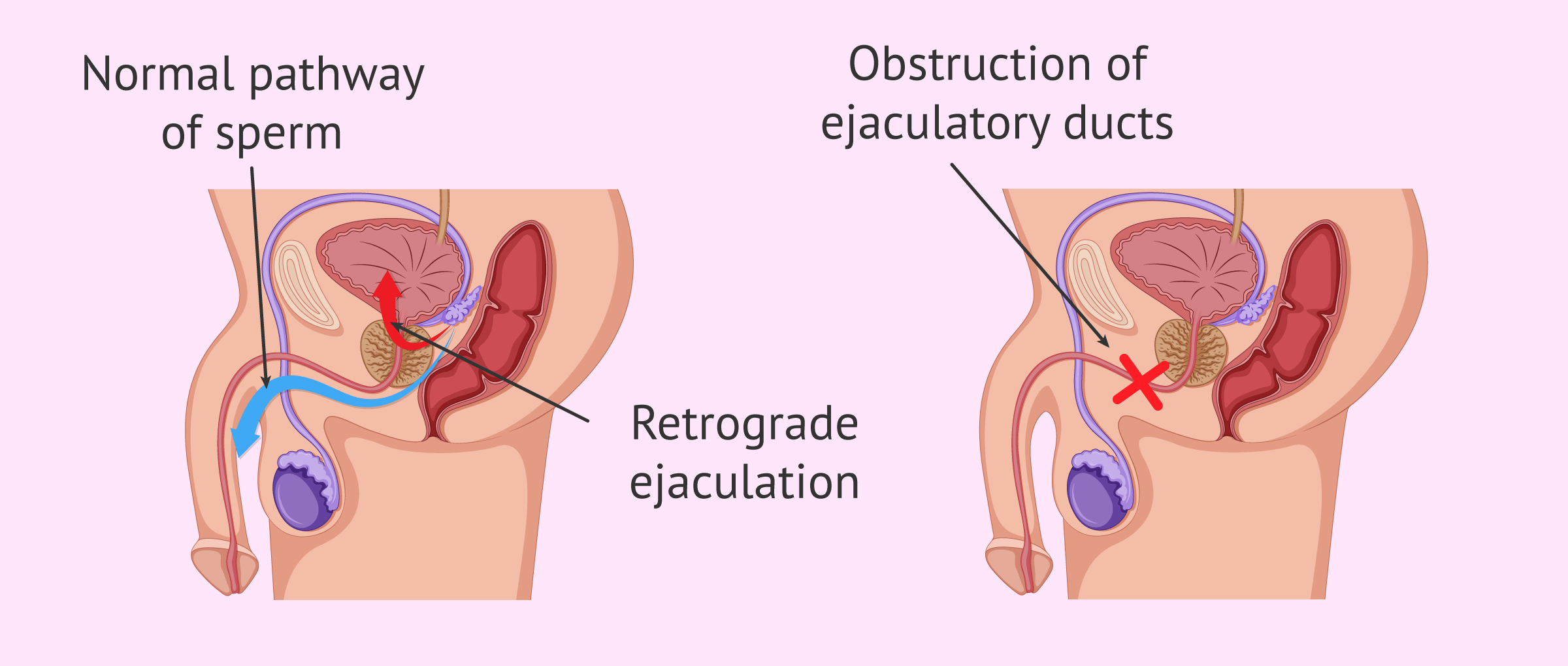
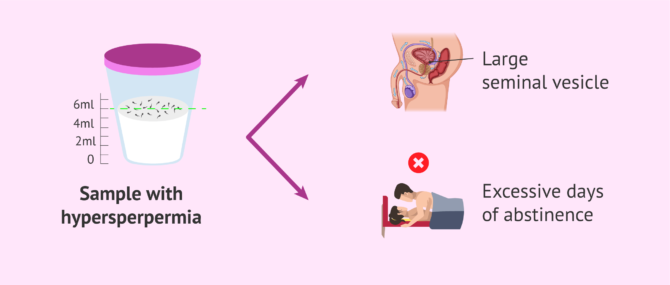
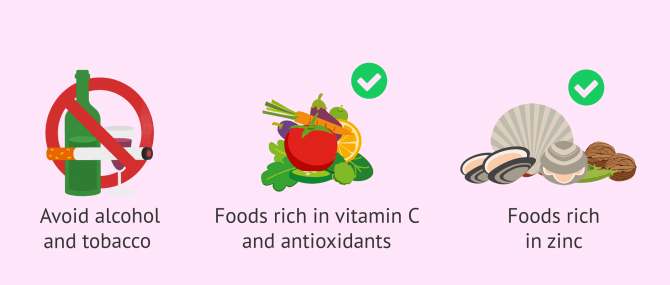







My name is Rachel and I want to know if this spermogram is normal, because I was told by a urologist that if I got pregnant my babies could get weak or sick. Please, I’m very upset. The results are as follows:
oplescent gray, vol: 2.3, liquefaction 48 minutes, alkaline reaction. total motility 70%progressive 60% sperm count 80,000,000ml. but this is where my concern lies heads oval shapes 80%, head disorders20% macrocephalus: 7% microcephalus8% elongated 3% pyriform 3% tumescent segment4 short flaxellum3 epithelial cells 2-5. leukocytes 11-14 bacteria++.
Is it possible to ejaculate more than 6 ml of semen, up to how much maximum you can ejaculate?
Hi Max
A normal sperm volume is considered from 1.5 mL. However, when this amount is greater than 6 mL it is known with the hyperspermia man. This seminal condition is not a cause of male infertility, although it is usually related to larger than normal size of seminal vesicles.
Hope I could answer your question.
Best regards
Hi, I’ve been married for five years and we still haven’t had children with my partner. My husband was tested and told that he had azoospermia, according to them, because he was diabetic. Is there any chance that we can get pregnant?
Thank you.
Hi Iris,
Azoospermia is a sperm disorder characterized by the absence of sperm in the ejaculate. For this reason, pregnancy in a natural way is not possible.
Thanks to assisted reproduction techniques, a man diagnosed with azoospermia can become a father. For this, a testicular biopsy is necessary to obtain sperm directly from the testicle. These sperm will be used to fertilize the eggs through the ICSI technique.
In cases where it is not possible to obtain sperm, it will be necessary to resort to a sperm donor.
I recommend that you visit the following article for more detailed information: Azoospermia.
Hope this helps,
Best regards